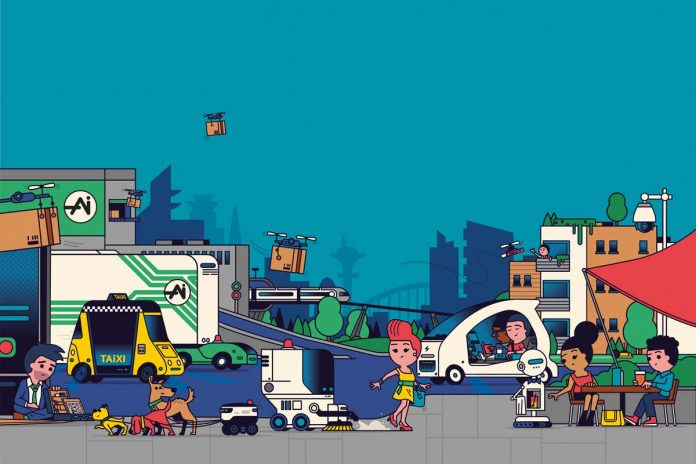[ad_1]
Coronavirus has put a rocket under plans for more automation, roboticisation and use of AI. Should we fear for our jobs – or will we just get better ones?
Technology
7 October 2020

ON AN upper floor, something stirs in the semi-darkness of a closed shopping centre. It stops in front of a clothing store, bathing the window display in searing light. No alarm bells sound, no security guards rush forth. The Sunburst UV Bot, with its 1000 watts’ worth of UVC light capable of “tearing apart strands of virus DNA”, comes here every night, as well as to a few other malls and hospitals in Singapore. It is doing something that human workers would have done before the covid-19 pandemic: cleaning.
Similar scenes are occurring across the world. In Texan hospitals, Moxi delivers medications, lab samples and supplies. P Guard enforces lockdown curfews on Tunisian streets. James the telepresence bot helps residents at Belgian care homes stay connected. Other robots scrub supermarket floors, deliver meals to people in quarantine and even help walk the dog. Meanwhile, non-embodied artificial intelligences are assisting in everything from contact tracing and cracking the coronavirus’s genetic code to the logistics and customer fulfilment of an increasingly online commercial world.
This trend towards automation and roboticisation isn’t new – but covid-19 is vastly accelerating it. “What this pandemic has done is make people extremely aware of hygiene and the need to distance”, says Richard Pak at Clemson University in South Carolina. “In these times, robots and automation definitely provide a safety benefit.”
And perhaps also a huge problem. Unemployment has shot up as coronavirus has hit the global economy. What happens if we emerge from the covid-19 recession to find that jobs have permanently gone – with no plan B to keep us gainfully employed?
The rise …
[ad_2]
Source link











